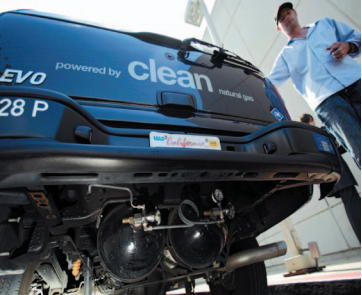
The Role of Government
American.gov | 2013-01-24 14:30

State governments, especially California's, have exerted leadership in reducing air pollution. (© AP Images/Damian Dovarganes)
U.S. government enforces basic rules for all economic participants
(The following article is taken from the U.S. Department of State publication, USA Economy in Brief.)
Some people complain that government regulation of the economy is too little, too late. Others scoff that the U.S. economy is no free market at all, with so much regulation. Some of the most enduring debates of U.S. economic history focus on the role of government.
Emphasis on private ownership jibes with U.S. beliefs about personal freedom. Since independence, Americans have most often sought to limit government's authority over individuals, including its role in the economic realm. And most Americans have believed that private ownership of business is more likely than government ownership to achieve the best economic outcomes.
Even so, most Americans want governments to perform certain tasks in the economy, and the U.S. legal system provides a sound infrastructure on which to do business.
Businesses – at least legitimate businesses – need permission from governments to operate at all. Corporations need a charter from one of the 50 state governments. (More than half of U.S. publicly traded corporations are incorporated in the tiny state of Delaware because they like its regulatory regime.) Businesses need various registrations, licenses, and permits from local governments.
Businesses need the court system for protecting property rights, enforcing contracts, and resolving commercial disputes.
Governments protect consumers from business. The federal government, for example, uses antitrust laws to control or break up monopolistic business combinations that become powerful enough to escape competition. Governments redress consumers' grievances about business fraud and enforce recalls of dangerous products.
Governments regulate private companies' activities to protect public health and safety or maintain a healthy environment. The U.S. Food and Drug Administration bans harmful drugs, for example, and the Occupational Safety and Health Administration protects workers from hazards on the job.
Since Americans have become increasingly concerned about the environmental impact of industry, Congress has passed many laws to control air, water, and ground pollution. Establishment of the U.S. Environmental Protection Agency (EPA) in 1970 brought together many federal programs charged with protecting the environment. The EPA sets and enforces limits on pollution and establishes timetables to bring polluters into line with standards.
Government involvement in the economy increased significantly during the most serious economic downturn in U.S. history, the Great Depression (1929-1940). President Franklin D. Roosevelt launched what he called the New Deal to rescue the economy.

A California state worker measures water flow to assure proper allocation to rights holders. (© AP Images/Rich Pedroncelli)
Many of the laws and institutions that define the modern U.S. economy emerged from New Deal legislation extending federal authority in regulating business and providing public welfare. The New Deal established minimum standards for wages and hours on the job. It created programs and agencies now deemed indispensable, including the Securities and Exchange Commission, which regulates the stock market; the Federal Deposit Insurance Corporation, which guarantees bank deposits; and the Social Security system, which provides retirees' pensions based on contributions they made while in the workforce.
Even with all its regulations, the United States in 2007 was ranked No. 3 by the World Bank in ease of doing business, after Singapore and New Zealand. All 10 ranking categories pertain in some way to government policy: starting a business, dealing with licenses, employing workers, registering property, getting credit, protecting investors, paying taxes, trading across borders, enforcing contracts, closing a business.
Government policies can also promote businesses. For example, tax breaks not only promote the public goal of home ownership – nearly 70 percent of U.S. households own their own home – but also expand business opportunities for real estate, construction, and mortgage finance companies.
Governments conduct research and development. Federal government research spending goes mostly to developing and testing weapons systems, but also helps keep the United States as the center of biological science research, for example.
Governments aim to advance U.S. business goals in international trade. State governments promote exports of their industries. The federal government aims to negotiate lower tariffs and other foreign barriers to U.S. imports and to protect U.S. companies from unfair foreign competition.
Governments provide certain services – such as national defense, administration of justice, education, environmental protection, road construction, space exploration – for which they are viewed as better suited than private businesses.
Governments take care of needs beyond the reach of market forces. They provide insurance payments to people who lose their jobs and low-cost loans to people who lose their homes in natural disasters. The Social Security system, financed by a tax on employers and employees, accounts for the largest portion of Americans' retirement income. The Medicare program pays for some medical costs of the elderly; the Medicaid program, for medical costs of low-income families. In many states, government maintains institutions for the mentally ill or people with severe disabilities. The federal government provides food stamps for poor families to purchase food. The federal and state governments jointly provide grants to support low-income parents with children.
What about government's role steering the economy?
Share this page



















